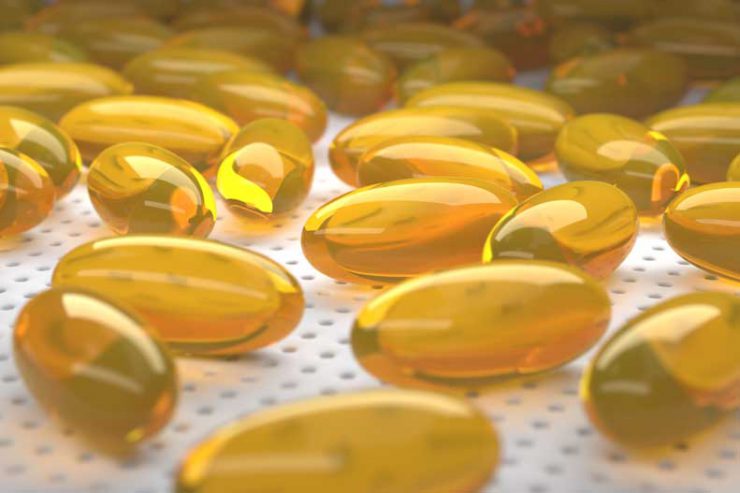Vitamin D is just one of the many nutrients essential to keeping your muscles, lungs, and heart healthy. It’s an important factor in maintaining strong bones, helping your body fight infections, and other key functions.
While you can (and should) consume Vitamin D through food and/or supplements, your body actually produces Vitamin D on its own when it is exposed to sunlight.
Get healthy with the help of UPMC Nutrition Services
Even though your body produces Vitamin D, it’s important to ensure you’re getting enough of it — Vitamin D deficiencies can cause a number of adverse health effects.
Never Miss a Beat!
Subscribe to Our HealthBeat Newsletter!
Thank you for subscribing!
You can now select the specific newsletters you'd like to receive.
You are already subscribed.
Subscribe to more newsletters in our email preference center.
Sorry, an error occurred. Please try again later.
Get Healthy Tips Sent to Your Phone!
Vitamin D’s Many Health Benefits
Vitamin D helps regulate and protect your immune system and allows your body to better absorb calcium.
Calcium is essential to maintaining strong bones and teeth. Children and adults who don’t get enough Vitamin D may develop serious bone problems because their bodies can’t absorb adequate amounts of calcium.
Getting enough Vitamin D has been linked to the following health benefits:
- The prevention of cancer
- Immunity to the cold
- The reduction of depression
- The reduction of risk factors associated with certain diseases, including diabetes and heart disease
What Happens If I Don’t Get Enough Vitamin D?
Vitamin D deficiencies
Those who do not get enough Vitamin D are at risk of developing a vitamin deficiency. This may occur if your skin is not exposed to enough sunlight. Deficiencies can also be the result of medical conditions such as:
- Kidney and liver diseases
- Cystic fibrosis, Crohn’s disease, and celiac disease
- Obesity
You might notice one or more of the following symptoms if you have a Vitamin D deficiency:
- General, persistent tiredness and aches and pains
- Severe muscle and/or bone weakness or pain
- Unusual occurrences of stress fractures, especially in the legs, hips, and pelvis
A Vitamin D deficiency can cause osteomalacia (soft bones) or osteoporosis (weak bones) in children and adults. Studies have also shown that individuals with a Vitamin D deficiency are at a greater risk of some medical conditions, though a deficiency has not been proven to cause the conditions. These conditions include:
- Breast, colon, and prostate cancer
- Heart disease
- Depression
- Weight gain
How Much Vitamin D Do I Need?
The National Academy of Medicine offers guidelines for how much Vitamin D a person should consume in each day, measured in international units (IUs), which are a standard of measurement for drugs and vitamins.
- Infants 0-12 months: 400 IUs/day
- Children and adults 1-70 years: 600 IUs/day
- Adults over 70 years: 800 IUs/day
Vitamin D and Food
Experts say that spending 10 minutes each day in the sunlight will allow your body to formulate all the Vitamin D it needs. However, there are a number of factors that can interfere with your body absorbing sunlight, so it’s important that you get the vitamin from other sources as well.
Foods with Vitamin D include:
- Cod liver oil
- Swordfish, salmon, and tuna
- Vitamin fortified milk or orange juice
- Sardines
- Liver and beef
- Egg yolk
- Swiss cheese
- Fortified margarine and yogurt
- Vitamin D supplements
If you notice any of the symptoms of Vitamin D deficiency or worry that you may not be getting enough Vitamin D, talk to your primary care doctor about adding vitamin-rich foods or supplements to your diet or adjusting your lifestyle.
About UPMC
Headquartered in Pittsburgh, UPMC is a world-renowned health care provider and insurer. We operate 40 hospitals and 800 doctors’ offices and outpatient centers, with locations throughout Pennsylvania, Maryland, New York, West Virginia, and internationally. We employ 4,900 physicians, and we are leaders in clinical care, groundbreaking research, and treatment breakthroughs. U.S. News & World Report consistently ranks UPMC Presbyterian Shadyside as one of the nation’s best hospitals in many specialties and ranks UPMC Children’s Hospital of Pittsburgh on its Honor Roll of America’s Best Children’s Hospitals. We are dedicated to providing Life Changing Medicine to our communities.
